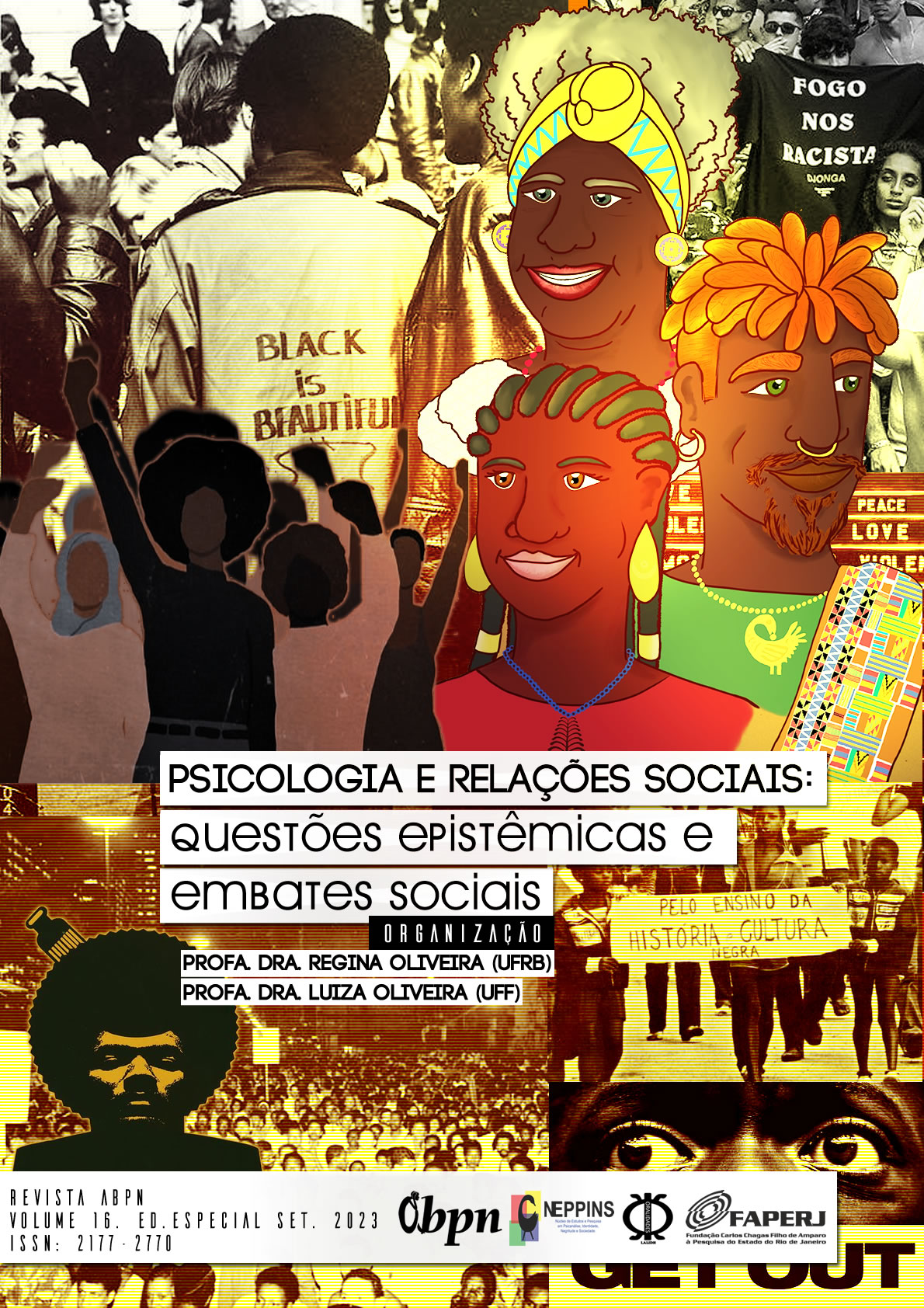RACISMO, PRÁTICAS CLÍNICAS E SOFRIMENTO ÉTICO-POLÍTICO: DIALOGANDO COM A PRODUÇÃO CIENTÍFICA EM PSICOLOGIA RACISM, PSYCHOLOGICAL PRACTICES AND ETHICAL-POLITICAL SOFRIMENT: DIALOGUES WITH SCIENTIFIC PRODUCTION IN PSYCHOLOGY
Main Article Content
Abstract
This work aims to analyze how scientific productions in psychology address racism as ethical-political suffering in clinical practice. The field-theme reveals the insistence of colonial power in violating and annihilating blackness, generating pain and ethical-political suffering, in which psychology, by presenting a gap in relation to black subjectivities, continues to maintain the colonial logic. For the analysis, a qualitative exploratory study was carried out, using a bibliographic review via a database, which shows the lack of references, theories, methods and practices focused on blackness. This process makes it impossible to decode complaints, welcome people and promote mental health, requiring anti-colonial and anti-racist reflections and practices that take black subjectivation as a reference.
Article Details

This work is licensed under a Creative Commons Attribution 4.0 International License.
Copyright Statement
- Authors retain copyright and grant the journal the right of first publication, with work simultaneously licensed under the Creative Commons Attribution License CC-BY 4.0 which allows the sharing of the work with acknowledgment of the authorship of the work and initial publication in this journal.
- Authors are authorized to enter into additional contracts separately for non-exclusive distribution of the version of the work published in this journal (eg, publishing in institutional repository or book chapter), with acknowledgment of authorship and initial publication in this journal.
- Authors are allowed and encouraged to post and distribute their work online (eg in institutional repositories or on their personal page) at any point before or during the editorial process, as this may lead to productive changes as well as increase impact and citation of published work (See The Effect of Free Access).

